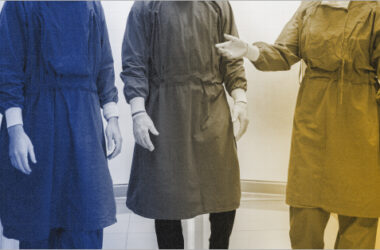The first thing that comes to mind when you consider saving taxes is Section 80C of the Income Tax Act, 1961. But here is a point–when you have been thinking 80C, you are leaving money on the table. You should also explore Section 80D of the Income Tax Act, the unsung hero that not only cuts down on your tax bill, but also contributes to your health and well being.
Health Insurance is not only a financial product. It also contributes to your peace of mind in the modern world when medical expenses have the potential to rise exorbitantly, on any given day. Section 80D also makes that peace of mind more affordable by rewarding you with deductions on your premiums and medical expenses. We will now take a closer look into how this section works, who is eligible to benefit and how you can make the most of your savings.
What is Section 80D of the Income Tax Act?
Section 80D is a provision that offers tax saving benefits to individuals and Hindu Undivided Families (HUFs) to claim deductions on payments they make on medical or Health Insurance policies. The section also covers preventive health check-ups and certain medical expenses, especially to the senior citizens.
Who can claim?
- Individuals: For self, spouse, dependent children, and parents
- HUFs: For members of the family
What’s covered?
- Premiums paid for health insurance policies
- Expenses on preventive health check-ups
- Medical expenses for senior citizens without insurance
To put it simply, Section 80D does not only cover your insurance needs, it also promotes proactive health checks. At the same time, it covers those who may not be insurable because of age.
Section 80D Deduction Limits for Health Insurance Premiums
Under this section, the Government has established definite deduction limits. Let’s break it down:
- For self, spouse, and dependent children: Up to ₹25,000 per year
- For parents: An additional ₹25,000 (if parents are below 60 years)
- For senior citizen parents (60 years or above): Deduction rises to ₹50,000
This implies that when you are below 60 and you also contribute towards senior citizen parents, you can claim up to ₹75,000 per annum. And when both you and your parents are senior citizens, the maximum deduction will skyrocket to ₹1,00,000.
Breakdown of Maximum Deduction Available
To make it simpler, here’s how the deductions add up depending on age:
| Particulars | Deduction Limit |
| Individual + Family (below 60 years of age) | ₹25,000 |
| Parents (below 60 years) | ₹25,000 |
| Parents (above 60 years) | ₹50,000 |
| Individual (below 60 years) + Parents (above 60 years) | ₹75,000 |
| Individual (above 60 years) + Parents (above 60 years) | ₹1,00,000 |
Thus, assuming that a 35 year old salaried professional purchases a family floater plan for his wife and child (₹20,000 premium) and a senior citizen policy on his parents (₹48,000 premium), his deduction under Section 80D would be ₹ 68,000.
Preventive Health Check-Up Deduction Under Section 80D
Health Insurance concerns risk coverage, whereas preventive health check-ups concern catching problems in time before it becomes a crisis. Understanding this, Section 80D gives you the opportunity to claim ₹5,000 per year toward preventive check-ups. It falls within those limits.
Who is eligible to claim this?
- Self, spouse, dependent children, and parents
Key point to note: ₹5,000 mentioned above for preventive check-ups is not exceeding the limit of ₹25,000 or ₹50,000 ( as the case may be). This amount is included within those limits.
For example, if you paid ₹24,000 as the insurance policy premium and ₹3,000 for a preventive health check-up, you can still claim only a maximum of ₹25,000 under Section 80 D deduction.
Deduction for Medical Expenses of Senior Citizens
Not every senior citizen in India is insured. A number of them get rejected because of pre-existing conditions or they cannot afford their insurance premiums. In such cases, the Section 80D provision provides a much-needed help:
- If no Health Insurance is taken for a senior citizen, medical expenses incurred are deductible up to ₹50,000.
This makes sure that the elderly parents or family members continue to receive tax reduction on out-of-pocket medical expenses. As an example, when your father, aged 70, is not covered by insurance and you incurred ₹40,000 on his hospitalization, you would be able to claim the full amount as per Section 80D.
Mode of Payment for Claiming Section 80D Deduction
The taxman is clear about one thing—cash doesn’t count. To qualify for deductions:
- Pay premiums through cheque, credit/debit cards, net banking, UPI, or demand draft
- Only preventive health check-ups can be paid in cash and still qualify
Always retain receipts, bank statements, or insurance certificates. They’re your evidence if ever asked by the Income Tax Department.
Key Points to Remember While Claiming Section 80D
Before you rush to claim, here are some non-negotiables:
- No deduction for cash premium payments
- Premiums paid for siblings, in-laws, or friends are not eligible
- Policies must be purchased from IRDAI-approved insurers
- GST and service tax portions in the premium cannot be claimed
- Group insurance premiums paid by employers do not qualify unless you contribute separately
These fine-print rules make a huge difference when you sit down to file your return.
Section 80D vs. Section 80C: How They Differ
It’s common to confuse these two, but they serve very different purposes:
- Section 80C: Focuses on investments and long-term savings (PF, ELSS, LIC, tuition fees, etc.). Maximum limit: ₹1.5 lakh.
- Section 80D: Dedicated solely to medical and health insurance expenses. Maximum limit: ₹1 lakh.
The smart strategy? Use both. For example, max out your 80C with PPF or ELSS, and simultaneously claim deductions under 80D for insurance premiums. That way, you’re protecting your wealth and your health.
Practical Examples of Section 80D Tax Benefits
Let’s put theory into numbers:
Case 1: Young Professional
Ravi, 30, buys a family floater for himself, wife, and daughter at ₹24,000 per year.
- Deduction under 80D: ₹24,000
- Tax saving (assuming 20% slab): ₹4,800
Case 2: Family with Senior Citizen Parents
Sneha, 40, pays ₹21,000 for her own family floater and ₹45,000 for her parents’ senior citizen policy.
- Deduction: ₹21,000 + ₹45,000 = ₹66,000
- Tax saving (20% slab): ₹13,200
Case 3: Senior Citizen Without Insurance
Arun, 65, has no insurance but spends ₹32,000 on medical treatment.
- Deduction under 80D: ₹32,000
- Tax saving (30% slab): ₹9,600
These examples show that 80D doesn’t just reduce taxes—it adapts to real-life situations.
The Bottom line:
Health crises are something that hit you when you are least expecting. One hospital bill has the power to sweep away years of savings. This is why health insurance is not optional anymore, it is necessary. And when the government intervenes under Section 80D of the Income Tax Act to lighten your load, it becomes a win-win situation.
Here’s the bottom line:
- Take Health Insurance not only to be safeguarded but also to receive tax advantages.
- Cover your parents, particularly when they are senior citizens.
- Make sure you include preventive check-ups in your claims.
Tax savings are critical, but the health and peace of mind of your family are invaluable. Section 80D assures that you do not need to make a choice–you can have both.








